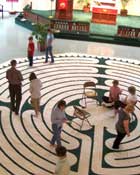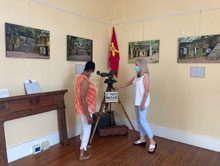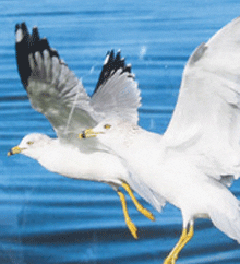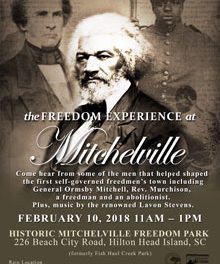This ancient spiritual practice seems to suit these changing times.
Perhaps it’s the paradox of changing times. As we move further into the 21st century here in the United States, organized, mainline religious denominations are on the decline while fundamentalist churches are growing, and the acceptance of broad concepts about “spirituality” are on the rise, particularly among the younger generation. Polls show that we may be the most “religious” of industrial societies, but the truth is that the national religious climate no longer favors the traditional expressions of faith we knew in the decade of the 1950s.
Since then, we’ve struggled through the trauma of Vietnam, the cultural storms of the 60s and 70s, all under the shadow of what we called the Cold War. At the close of the millennium we discovered that societal values and lifestyles were in constant flux, and that religious institutions and systems of belief were equally vulnerable. We realized that Woodie Guthrie had it right, decades ago, “For the times, they are a’ changin.'”
These observations are offered simply to illustrate that, in the midst of all the fussing and fuming going on in some religious sectors, one of the most ancient ecumenical expressions of faith in the history of Christianity is enjoying a revival: Labyrinth Spirituality. It is a simple type of religious devotion which is largely resistant to change; and that isn’t all bad.
The earliest known forms of labyrinths had their origin in Greece, and date as far back as 2000 BCE. Specifically Christian labyrinths date from a fourth century basilica in Algeria. Over the centuries, multiple labyrinth designs were imbedded in the floors of some medieval French cathedrals, as in Chartres, Amien and Reims. The labyrinth which you are invited to walk here in Beaufort is a replica of the design from the 13th century Chartres Cathedral.
The renewed emphasis upon this ancient setting of prayer and meditation dates back to the early 1990s when, almost like an explosion, churches, hospitals, commercial companies, prisons, and private individuals established labyrinths and promoted their use for spiritual aid. Labyrinth websites have popped up, the best known being Veriditas, the Worldwide Labyrinth Project, part of an outreach ministry at the Grace Episcopal Cathedral in San Francisco.
The labyrinth is a means to an end; a specific form of spiritual discipline. Even while sharing the journey with others, the experience stimulates the individual imagination, creates a greater awareness of self in relation to others, and focuses the spirit upon things holy. Some travelers read or meditate on passages of scripture, some bring specific concerns in the form of silent prayer, some consider where they are in life and what God may be guiding them to do – but all are open to the presence of the Spirit of God in the unique setting of subdued light, candles and the sounds of ancient hymns and chants.
While reading Karen Armstrong’s latest book, The Case for God (Knopf, 2009, p. 310), one of her closing thoughts caught my attention. She writes, “Religion is a practical discipline, and its insights are not derived from abstract speculation but from spiritual exercises and a dedicated lifestyle. Without such practice, it is impossible to understand the truth of its doctrines.” To me, this prolific author on matters of faith and life was describing the place and purpose of the labyrinth.
The faith family of St. John’s Lutheran Church, 157 Lady’s Island Drive, invites you to walk with them and experience a journey of Labyrinth Spirituality on three days during Holy Week. The labyrinth will be available Monday through Wednesday, 29-31 March, during the early evening hours of 5 to 7 p.m. In addition, participants are welcome on Tuesday and Wednesday afternoons, from 2 to 4 p.m. There is no charge, and the event is open to the public.
Veteran walkers will recall that shoes are not worn while traveling the 36 foot canvas labyrinth path. Guidance and instruction will be available for first-time walkers. Call Chaplain Fred Wilson, 524-5993, for futher information.






